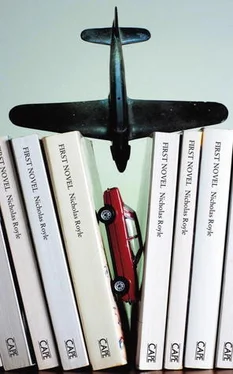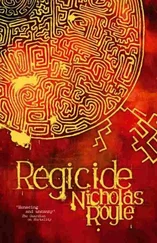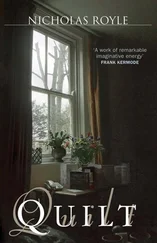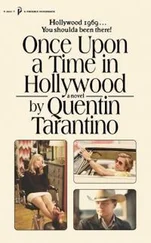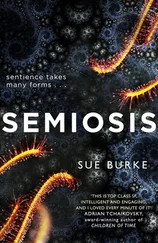When all of the questions had been asked, he was thanked and dismissed and as he left the stand he felt a strange, almost visceral reconnection with himself. No longer was he observing himself from above. There was no doubt in his mind that he had done the right thing. There would be moments of sorrow, he sensed, but he would not allow them to consume him. They would not define him. He would rise above them and move on.
From the dock, Squadron Leader William Dunstan turned to look at Ray, but Ray felt no guilt, only a twinge of regret that this man, this beautiful man, would be beyond his reach, not only for the length of his sentence, but for ever.
From the Old Bailey, Ray walked to Soho and entered the Golden Lion on Dean Street. The man was not there, but other men were.
Later, he bought a cheap bound notebook from an oriental supermarket in Chinatown and sat in a noisy café writing notes, ideas, scraps of poems. When he was asked later, years later, when had he started writing, he always said it was that night. It was months before he produced anything he thought was worth sending off. But when he did start writing decent stuff, as he thought, he didn’t allow rejection to stand in his way. He kept on writing and typing and sticking stamps on envelopes. His first offer of acceptance came from a relatively new magazine called Ambit . The editor, Martin Bax, wrote Ray a short note saying the editors had enjoyed his poem very much and would like to include it in the next issue. He was offered a small fee and encouraged to send in more work as and when he produced it.
Ray never did take up his university place in Manchester. His attendance at Dunstan’s trial meant he missed enrolment and his simultaneous entry into London’s homosexual subculture reduced his desire to return to live in Manchester, where he imagined the opportunities for experimentation and exploration would be thinner on the ground. The poetry magazines were mostly based in London, which was also where the more interesting live events tended to be put on. The Royal Albert Hall had been full to hear Allen Ginsberg perform at the International Poetry Incarnation a couple of years earlier. Because of his success with Ambit , which continued to publish his poetry, Ray took part in a reading that the magazine organised at the ICA with a new writer called J. G. Ballard who was making waves in science fiction. Ray let his hair grow down to his shoulders; a moustache appeared. The poems kept coming and they featured in a growing selection of magazines: London Magazine, Bananas, Samphire . Alan Ross even lofted the idea of a collection from London Magazine Editions. Ray demurred, not wishing to appear presumptuous. He had not been writing long, he said, and wasn’t so sure he had a collection in him. He had been reading widely and making new discoveries all the time. Peter Redgrove, Ted Hughes and Sylvia Plath were writers whose work he admired. At the same time he found himself brushing shoulders with the likes of Christopher Logue, Michael Horovitz and Lee Harwood at readings and launches. His name started appearing on guest lists and if you had been invited into his humble Earls Court bedsit at any point from the turn of the decade you would have seen a number of invitations on stiff card leaning against the mirror above his mantelpiece. He was the first person to suggest, in a series of poems published in London Magazine , that Mark Rothko, the abstract expressionist, was perhaps not so abstract after all. The large black and grey paintings of 1969 and 1970 were pictures of the moon, Ray argued. The poems were well reviewed in the TLS and Ray began to feel as if he belonged, although he had yet to broach the subject of sexuality in his work.
In 1971, feeling restless, he requested permission to visit Dunstan in Pentonville Prison, but this was denied. Instead he took the train to Manchester. He had continued to make regular trips to the north-west to see Nicholas. His parents were entering their sixties yet still seemed more than up to the job of rearing his son. They appeared neither to enjoy life nor find it an intolerable burden. But that had always been the case. Ray tried to raise the subject of Nicholas’ continued care without being overly explicit. Partly he feared offending his parents by suggesting that they might like to offload the responsibility. Yet he knew that taking over parenting duties would hardly sit well with his lifestyle. The status quo persisted by default.
An only child with elderly guardians, Nicholas was a bright and reasonably self-sufficient eight-year-old. He had been told the facts about his mother and he knew who his father was.
At the end of any one of his visits, Ray would stand at the gatepost and look back. Nicholas would be standing just in front of his grandparents on the path by the front door, his nana’s hand resting on the top of his head.
Returning to London, Ray would throw himself into the life he was living with even more gusto, enthusiasm and hedonistic abandon. He divided his time between the Tate Gallery, the Cross at Vauxhall and the cruising grounds of the West Heath. At the same time, the work seemed to pour out of him. Someone from one of the magazines had a word with a small independent publisher and almost without Ray having to lift a finger a collection appeared in the next catalogue. As publication neared, Ray needed to be around more. The gaps between the trips to Manchester got longer until it was little more than an annual visit at Christmas. Nicholas’ birthday was difficult for Ray. For all his living life to the full as a single man, Ray was still and would always be a widower. That pain never went away. It just became duller and then would flare up again at certain times or when prompted by events.
Ray’s debut collection, The Beach , was published in autumn 1978. Ted Hughes was among those present at the launch party. Ray was introduced to the future Poet Laureate and he shyly confessed that without Hughes’ example he might never have attempted to marry nature with humanity. He said that his poem ‘The Mynah Bird’ had been intended as a tribute to Hughes’ ‘Crow’. During a lull, Ray found himself at the drinks table taking small gulps from a glass of champagne in readiness for another that was in the process of being poured when a man in a wide-lapelled velvet jacket and flared jeans approached him, placing a hand on his arm.
‘Don’t you think you’ve had enough?’ said the newcomer.
‘I certainly don’t, no,’ said Ray as he turned to look at the man, whose reddish-brown hair was styled in a wiry bouffant that had been fashionable a year or so before. The straggly moustache had never really been in vogue. Ray himself had shaved off his own moustache when he had acquired a crew cut in 1977. It was the man’s eyes that struck Ray. They were deep-set, wary, suspicious, even hostile. This was a man who had had good looks and lost them, a man who had deliberately shed them. Good looks in prison were a burden.
‘Squadron Leader Dunstan,’ said Ray.
‘Just Bill nowadays,’ said Dunstan.
‘Bill.’
‘So, you seem to be doing well for yourself, Corporal .’
‘Bill, I…’
‘What? You’re sorry? You don’t know what came over you?’
‘How long have you been out?’
‘A while.’
Dunstan took the glass of champagne from Ray’s hand and downed its contents in one. He held it out to the waiter to get it refilled, then sipped at his second glass.
‘How did you find me?’ said Ray.
‘Don’t flatter yourself, Cross. I go to all the launch parties.’
‘Was it hard?’ Ray asked.
‘What, prison? You get used to it. If you don’t, you go under.’
‘That boy had his whole life ahead of him,’ Ray said, pre-empting Dunstan.
Читать дальше
